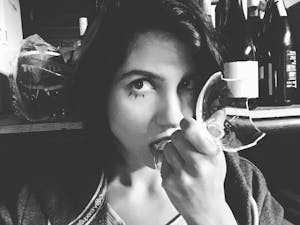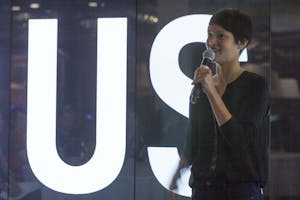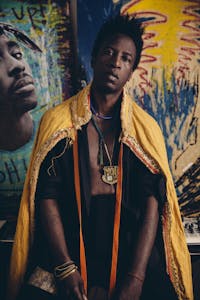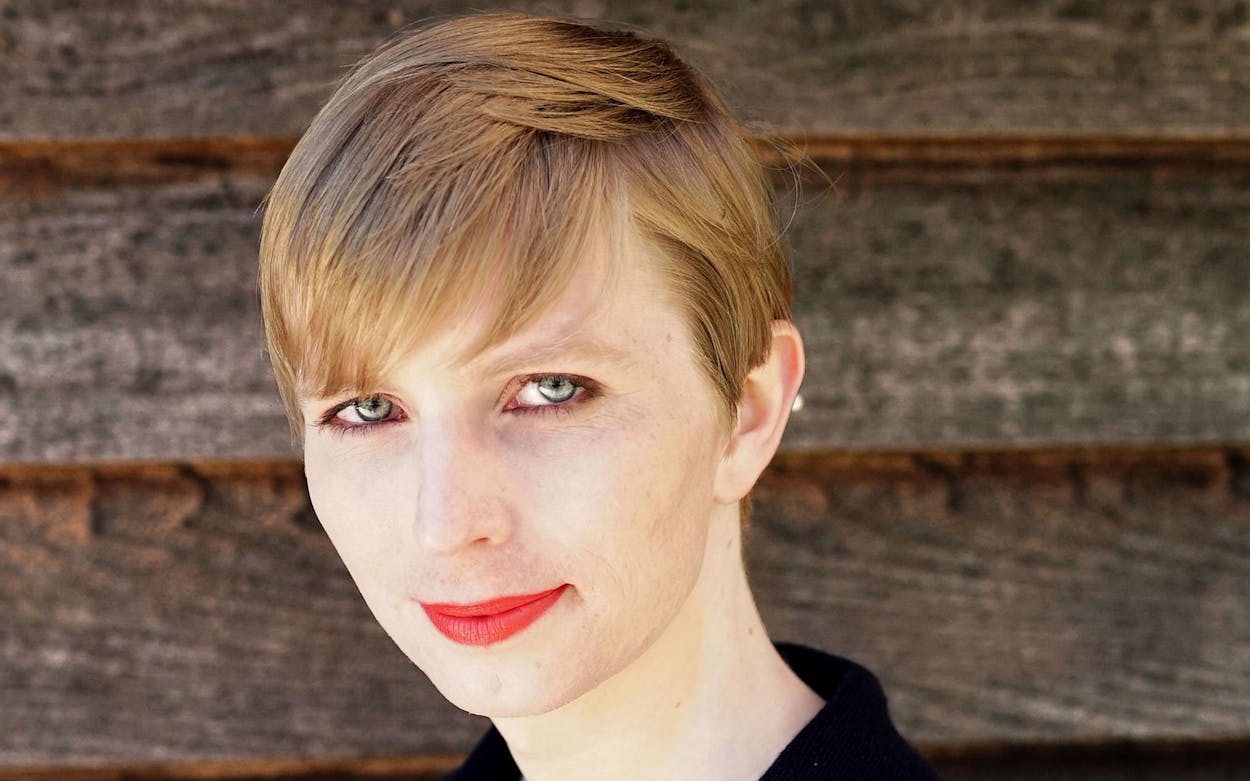
Multimedia artist Laurie Anderson began her talk at this year’s Day for Night festival in Houston by inviting the audience of several hundred people to let out a primal scream. For the next twenty seconds, the audience—happy to comply with Anderson’s request—made the old Barbara Jordan Post Office’s cavernous interior roar with a year’s worth of pent-up frustration.
The official theme of the first-ever Day for Night “summit” was art and activism, but the subtext of that was anger—about Donald Trump, about Vladimir Putin, about a world in which “autocratic trends are spreading like sexually transmitted diseases” (as Pussy Riot’s Nadya Tolokonnikova put it). In addition to Anderson and Tolokonnikova, the Friday series featured LGBT activist and former prisoner Chelsea Manning; poet and performer Saul Williams; and artist/programmer Lauren McCarthy.
Now in its third year, Day for Night brings in thousands of attendees for a weekend packed with marquee bands—this year’s headliners include Nine Inch Nails, Thom Yorke, Solange, and St. Vincent—plus light and sound installations from some of the world’s top visual artists. This year, the festival organizers decided to kick the festival off with a symposium that at times felt more like a teach-in at a college campus.
And Chelsea Manning likely expected to be in those types of academic spaces—just not at Day for Night. In September, Harvard University rescinded its invitation to Chelsea Manning to be a visiting fellow after receiving blowback from top American intelligence officials. Harvard’s loss was Day for Night’s gain; a few days later, the festival announced that Manning would participate. “It underscores how absurd the times we live in are, because it should be the other way around,” says festival founder Omar Afra. “The private sector should be the capitulators, and the academic world should have academic freedom. I was shocked when Harvard removed [Manning], and I think it’s a shame.”

Manning was convicted in 2013 of leaking over 700,000 classified documents to Wikileaks while working as a U.S. Army intelligence analyst in Iraq, and was eventually sentenced to 35 years in prison. Manning spent seven years in prison before having her sentence commuted by President Barack Obama just before his term ended in January 2017.
“I had accepted that for the rest of my life I would be living [in prison], or at least the rest of my youth,” Manning told the crowd on Friday at Day for Night. “I never thought I’d be here. I never thought I’d be on a stage like this.” Since her release, Manning has become an LGBT and government transparency activist, with a large following on Twitter.

At one part during the symposium, Manning and Tolokonnikova sat on stools across from each other discussing their respective experiences of prison life. Tolokonnikova and her Pussy Riot bandmate Maria Alyokhina spent two years in a Russian prison after playing an anti-Putin concert at a Moscow cathedral in 2012. Like Manning, Tolokonnikova went on a hunger strike at one point to protest her imprisonment.
“I was struck by how similar our experiences were,” Manning told Tolokonnikova. “Prison society transcends cultures, transcends times. I read Aleksandr Solzhenitsyn’s book [The Gulag Archipelago], and I was surprised. I didn’t realize that nothing had changed in prisons—they’re exactly the same. They just got better at surveilling us.”
Tolokonnikova, who will perform on Saturday afternoon at Day for Night as Pussy Riot, pulled no punches in her criticism of Russian and American political leaders. “Putin and Trump do share many things—their business and political connections, as well as being deadly corrupt,” she told the audience. “Their shared belief that people are motivated solely by self-interest. Distrustful of human sincerity or integrity, selfishly calculating their profits from every human transaction.”

She said that after she was arrested she was given the opportunity to disavow her protest and express support of Putin. She refused and was sent to jail. “As a former KGB agent, Putin simply doesn’t believe in beliefs. Everyone who believes can be bribed or intimidated, he thinks. Money or a gun can neutralize any conviction. That’s why people like Putin, they don’t really understand people like us. We live in different universes.”
At the end of the summit, the entire panel took the stage to answer questions submitted through social media. One of the question asked panelists how they kept up their morale in the face of overwhelming and sometimes ominous political developments. Anderson talked about her practice of Buddhism. Williams said he was inspired by earlier African-American artist-activists like Paul Robeson. McCarthy urged the audience to look for the good around them. Finally, Manning spoke how she managed to survive seven years in an often brutal men’s prison.
“Nobody can give you hope,” she said. “In my experience, I had to find it within myself. Even at times of darkness and despair, I was able to get out of it by finding that one thing inside of myself that said, you know, we can do this.”








